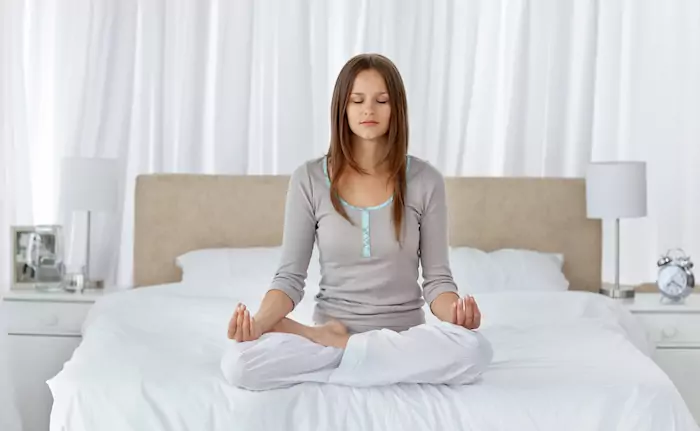Getting a good night’s sleep is essential for our overall health and well-being. However, when we lead busy lives full of stress and responsibility, many of us struggle to get the quality sleep that we need.
So, if you struggle to get enough regular rest, here are just five effective tips to improve your sleep and help you to wake up feeling refreshed and rejuvenated.
5 Tips to Improve Your Sleep
- Establish a Sleep Schedule
Maintaining a consistent schedule is one of the best things you can do to improve your sleep. This involves going to bed and waking up at the same time every day in order to set your internal body clock.
To establish your sleep schedule, figure out how much sleep you need for your daily productivity and well-being, and set a bedtime that allows for this. Stick to your new schedule as closely as possible, even on the weekends, and if you do need to make variations, try to do so gradually.

- Create a Relaxing Routine
A relaxing routine can help signal to your body that it’s time to prepare for sleep, so fill the hour before your bedtime with calming activities that help you transition from wakefulness to sleepiness.
Consider trading in your social media time for activities such as reading a book, taking a warm bath, and listening to relaxation apps such as Calm. This is important as the blue light that is emitted by our screens can interfere with the body’s sleep hormone production.
- Upgrade Your Sleep Environment
Your bedroom plays a crucial role in the quality of your sleep, so make sure that it’s conducive to rest by focusing on factors such as temperature, noise, light, and comfort.
While bed shopping can be straightforward for some people, if you suffer from sleep issues, a traditional bed frame might not be the best option for you.
If so, consider investing in an adjustable bed, such as those stocked by Archers Sleep Centre, this way you’ll be sure to find the perfect sleep position to suit your needs.

- Alter Your Diet and Exercise
Your diet and physical activity throughout the day can significantly impact your sleep quality, so making changes can help you get better rest. Try to avoid large meals, caffeine, and alcohol too close to bedtime as these can all interfere with your ability to fall and stay asleep.
Try sleep supplements which aim to help you catch those Zs and wake up feeling truly revitalised and ready for the day beyond the duvet cover.
Additionally, engaging in regular physical activity can help you fall asleep faster and enjoy deeper sleep, so try to aim for at least 30 minutes of moderate exercise most days of the week.
However, it’s important that you avoid vigorous exercise in the evenings as it can have a stimulating effect and make it harder to fall asleep.

- Manage Stress and Anxiety
Stress and anxiety are common causes of sleep problems, and then the inability to sleep can increase feelings of stress and anxiety.
This means that finding ways to manage these issues can greatly improve your sleep quality. From relaxation techniques in your daily routine to writing down your thoughts and worries before bed, there are things you can do to help clear your mind.
And, if you find that you’re struggling, platforms such as BetterHelp can connect you with therapists who have the tools to help you.
Incorporating these tips into your daily routine can lead to significant improvements in the quality of your sleep and overall well-being. Remember, better sleep starts with small changes, so be patient with yourself as you implement these strategies. Here’s to a restful and rejuvenating night’s sleep!

